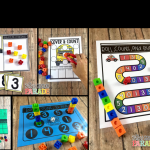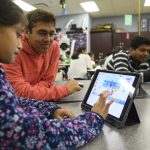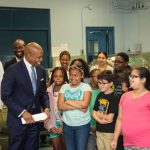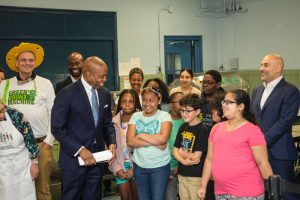
Mentorship plants seeds of growth in students. As Michelle Obama said, “Mentoring is a brain to pick, an ear to listen, and a push in the right direction.” Caring mentors guide K-8 students to believe in themselves and nurture their talents.
What Makes a Great Mentor?
Effective mentors take an active interest in students’ overall development. Key qualities include:
Patient – Allow students time to open up. Don’t expect trust to form instantly.
Empathetic – See from students’ perspectives. Provide emotional support during challenges.
Encouraging – Applaud effort and growth. Instill confidence to overcome obstacles.
Engaged – Make mentoring a priority. Dedicate consistent time and attention.
Open-Minded – Accept students’ diverse backgrounds, interests and needs.
With understanding and care, mentors become invaluable champions in students’ lives.
Teachers as Mentors
Teachers often serve as frontline mentors, guiding academic and personal growth. Study skills coaching, homework help, classroom encouragement and one-on-one check-ins provide critical support. Make time for students to share what’s happening in their lives, then offer advice and reassurance.
Take interest in students’ skills and passions beyond academics, like art, sports or music. Attend extracurricular events to cheer them on. Simple gestures like greeting students by name or giving pats on the back make a difference.
Power Lunch Mentors
Many schools have launched “Power Lunch” programs, pairing students with adult mentors who meet over shared meals. Mentors engage in friendly conversations about interests, goals and challenges. The informal setting helps students open up.
Recruit mentors from local companies, civic organizations, churches and volunteer groups. Use lunchtime to play board games, toss a ball and take walks together. Field trips to mentors’ workplaces expose students to potential careers.
Consistency is key – meet weekly or monthly to establish trust. Bonding over meals nourishes students’ bodies and spirits.
Peer Mentors
Students often relate best to near-peer mentors slightly older than themselves. Recruit responsible high schoolers or college students to be camp counselors, tutors or “buddies” to younger students. Make sure peer mentors receive training in child development, communication skills and mandated reporting.
Match peer mentors and students based on shared experiences, like teens who immigrated to the U.S. guiding new immigrant students. Have high school language tutors work with middle schoolers studying the same tongue. Athlete mentors can share sports expertise and encouragement.
Younger students look up to peers closer to their age. Their guidance helps build self-esteem during transitional years.
Group Mentoring
Some students thrive working with mentors in small groups rather than one-on-one. Establish clubs, programs and hangouts where mentors cultivate teamwork and camaraderie.
For example, science mentors could lead hands-on experiments with groups of curious kids. Art mentors can guide students collaborating on murals or mosaic projects. Outdoor mentors might organize geology hikes or camping overnighters.
Group mentoring provides built-in social support and motivates students to lift each other up. Shared endeavors also teach leadership as students take ownership of goals.
Virtual Mentoring
Digital platforms enable mentoring remotely via video chat, email, shared documents and messaging. While lacking in-person interactions, virtual mentoring makes matches possible despite geographic or scheduling barriers.
Platforms like iMentor connect students with mentors nationwide. Mentors can review students’ work, offer interview prep, provide college application guidance and more online.
Set expectations on digital etiquette and communication norms upfront. Virtual mentoring opens avenues of support beyond school walls.
Career Mentoring
Workplace mentoring prepares students for future jobs by illuminating career paths. Partner with local professionals to host job shadow days or boot camps introducing various fields.
Engineers can walk students through hands-on design challenges. Healthcare mentors could lead CPR certification courses. Coders can teach programming. Chefs might provide cooking lessons. Police officers, judges and politicians could explain roles in public service.
Exposure to passionate professionals gives students real-world context to spark vocational interests. Site visits to diverse workplaces expand their visions for the future.
Intergenerational Mentoring
Senior citizens have lifetimes of wisdom to share with youth. Recruit retiree volunteers to serve as foster grandparents, library storytellers or craft class co-teachers. Have them share career journeys, cultural traditions and historical reflections.
Encourage students and elder mentors to chronicle oral histories together. Trading family recipes and music bridges generational divides. Young and old alike gain purpose bonding through mutual care and understanding.
Parent Mentoring Circles
Don’t forget parents themselves need trusted mentors as they raise children. Facilitate parent mentoring circles where families share advice, resources and support under the guidance of counselors, social workers or priest/clergy members.
Address topics like developmental stages, academic assistance, emotional support and accessing community services. Let parents lead discussions about current challenges. Provide healthy snacks and activities like family yoga to reduce stress.
Strong families lift up students. Parent mentoring circles build community and empowerment.















